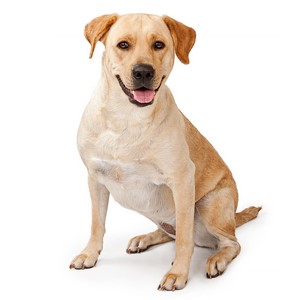Labrador Retriever Physical Appearance
Looking to own a Labrador Retriever Dog and need to know what is the general appearance of Labrador Retriever or what are the common colours of a Labrador Retriever?
Know more details about the colors, weight and height of Labrador Retriever Dogs from this page.
Labrador Retriever Size, Height and Weight
-
Consider the personality traits and appearance of the Labrador Retriever, as this breed is not for everyone. Use this information below to see if a Labrador Retriever would suit your lifestyle and household.
- Male: 22-24 inches (56-61cm)
- Female: 21-23 inches (53-58 cm)
- Male: 60-75 pounds (27-34kg)
- Female: 55-70 pounds (25-32 kg)
Size of Labrador Retriever: The Labrador Retriever Dog is a medium sized dog.
Height of Labrador Retriever:
Weight of Labrador Retriever:
- Black
- Chocolate
- Yellow
The Common Colours of Labrador Retriever Dogs
What to do if you lose your Labrador Retriever
If your Labrador Retriever Dog or any other pet has gone missing and it does not have an identification tag with a phone number, you can:
1. List your missing pet details at Pet Reunite website here.
2. Register the missing pet on the Local Lost Pets Facebook Groups Here.
3. Contact the nearby vet clinics to see if anyone has brought in your lost pet.
4. Telephone the RSPCA or Visit the RSPCA Lost Pets website and complete a Lost Pet Report.
5. Visit Lost Pets Pages of Animal Shelters.
What to do if you find a lost Labrador Retriever
If you find a Labrador Retriever Dog or any other pet and it does not have an identification tag with a phone number, you can:
1. Report the found pet details at Pet Reunite website here.
2. Report the missing pet on the Local Facebook Lost Pets Groups.
3. Phone the Local Council to collect the lost animal.
4. Take the animal to the local Animal Shelter assigned to your suburb.
5. Take the animal to the local Vet Clinic who can scan the animal’s microchip and contact the registered pet owner.
Laws Regarding Missing Pets
1. It is against the law to keep any animal that you find.
2. Pets are generally considered property and it is illegal to take and keep someone else’s property.
3. You must contact your local animal control unit and file a FOUND AN ANIMAL report for any dog or cat you find.
4. To reclaim your lost dog, cat or other pet from the animal shelter you must pay a release fee.
5. If your dog or cat is unregistered, you will have to register your pet before you can take it home.

